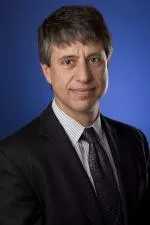
Health Care Costs and Transparency
featuring John Freedman, President & CEO of Freedman HealthCare
Event Description
Health spending continues to outpace wages and GDP, while some new insurance designs transfer greater shares of that to patients’ own out of pocket costs. In this talk, Dr. Freedman discusses what is driving health care costs up, who is benefiting, and how data is harnessed to study problems and remedy them.
The Digital Health @ Harvard series features speakers from Harvard as well as collaborators and colleagues from other institutions who research the intersection between health and digital technology. The series is cosponsored by the Berkman Klein Center for Internet & Society at Harvard University and the Petrie-Flom Center for Health Law Policy, Biotechnology, and Bioethics at Harvard Law School. The goal of the series is to discuss ongoing research in this research area, share new developments, identify opportunities for collaboration, and explore the digital health ecosystem more generally.
Notes from the Talk
Society needs to think about health care as a "team sport." That is, according to Dr. John Freedman, we need administrators and policy makers, not just physicians, to support health care infrastructure. In this talk, Dr. Freedman, President and CEO of Freedman HealthCare (a health data consulting firm), spoke to several current issues regarding health care costs and transparency. First, US health care spending has risen greatly in the last decade. However, this trend is not due to people’s increased utilization of services, but rather due to increasing prices for services. In addition, there is extreme variation in prices for the same procedures across providers and their offices. Disparities continue to grow as providers consolidate and the volume of patients has shifted to higher-priced providers located in outpatient clinics.
Unfortunately, these trends have negative consequences for social welfare. Health care costs crowd out other priorities. While spending on healthcare has increased, spending in other important areas, like education and human services, has greatly decreased. Additionally, though it is often touted as such, health care is not necessarily a “social equalizer,” due to what Freedman termed the “reverse Robinhood effect.” The effect happens when, for example, everyone from low-level employees to executives at an organization is on the same health plan. Research shows that the most expensive people on the health plan are actually those who come from higher socioeconomic backgrounds, while those who spend the least on the health plan are from lower socioeconomic backgrounds. Thus, the lower-income employees are essentially subsidizing health care for the higher-income employees.
While current circumstances with regard to health costs are concerning, Freedman sees greater transparency as a potential antidote. Freedman demonstrated a tool his group is developing called All Payer Claims Datasets. These datasets, which are compiled from multiple health benefit payers, aggregate eligibility records, medical and pharmacy claims, provider information, and insurance product details. Through the transparency provided by the Dataset tool, Freedman anticipates performance improvement in medical services, greater information for public health and health policy, better informed consumer choices, and greater access to data for researchers.
notes by Donica O'Malley
About Doctor John Freedman
John Freedman MD MBA has 30 years’ experience in care delivery, performance measurement & improvement, health IT, and health care reform. Before founding Freedman Healthcare, he held leadership roles at multiple innovative health care firms. Dr. Freedman served as Medical Director for Quality at Kaiser Permanente’s Colorado region, and as medical director for specialty services and coordinated care at New England’s largest community health center, overseeing 50 staff in 16 specialties. As medical director for quality and medical management at Tufts Health Plan, he helped them climb to a #2 national NCQA quality ranking. He has served on the boards of Massachusetts Health Quality Partners, Network Health (a 300,000 member Medicaid health plan), and the Fishing Partnership (which improves health in fishing communities). Dr. Freedman graduated Harvard College, U. of Pennsylvania School of Medicine, and the U. of Louisville School of Business. Freedman Healthcare is a leading consulting firm in health care reform, health policy analysis and development, and it has been engaged in many states to create all-payer claims databases, implement health insurance exchanges, and support health care transformation.
Download original audio and video from this event.
Subscribe to the Berkman Klein events podcast to have audio from all our events delivered straight to you!
You might also like
- communityOn Software Bugs and Legal Bugs
